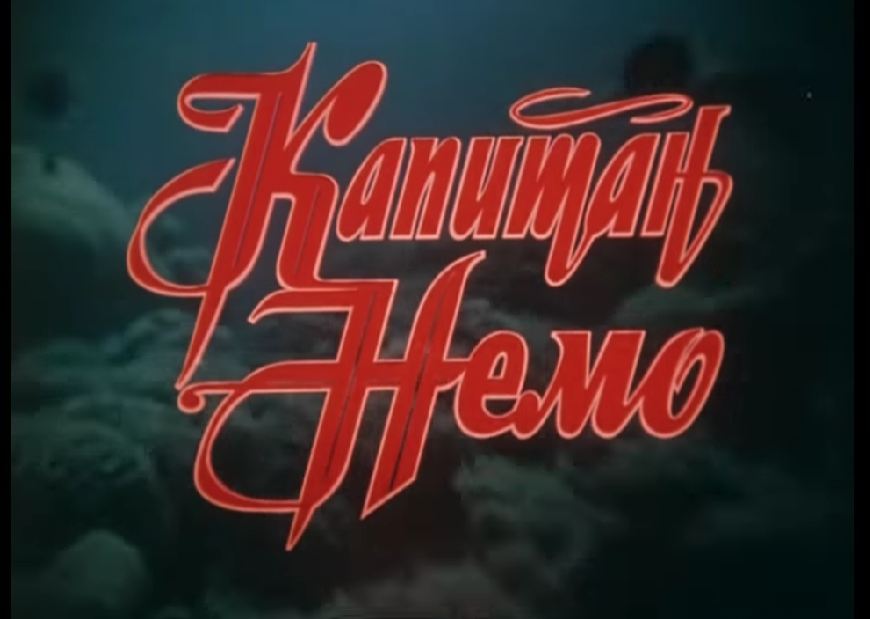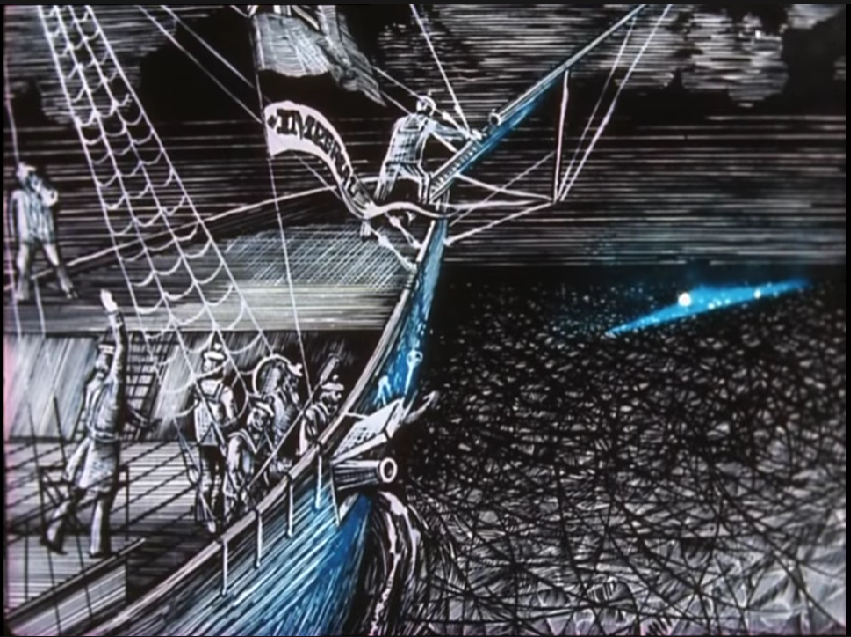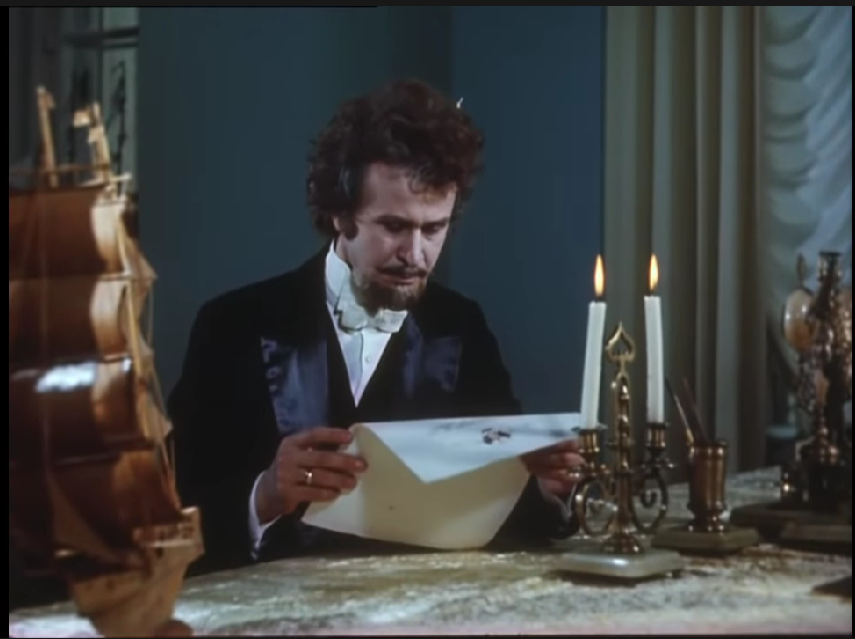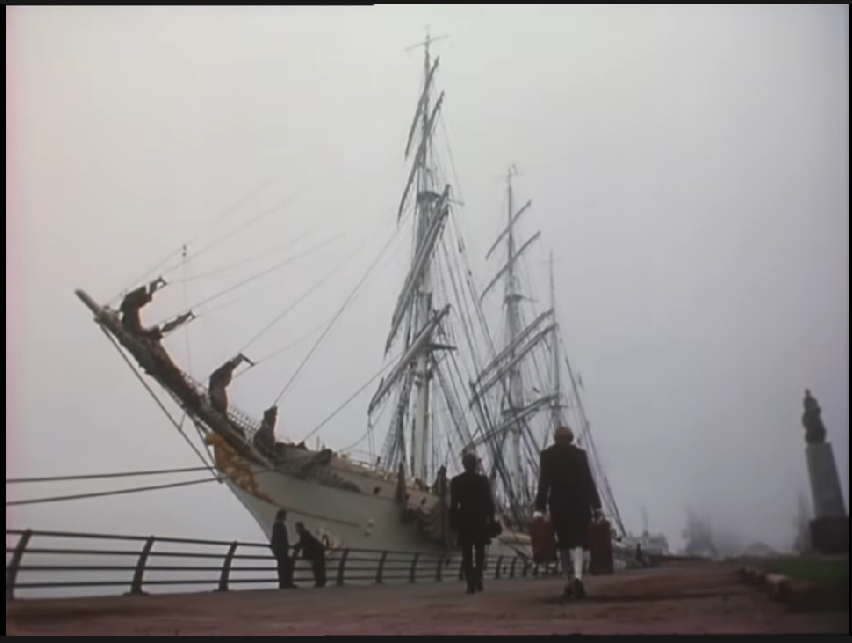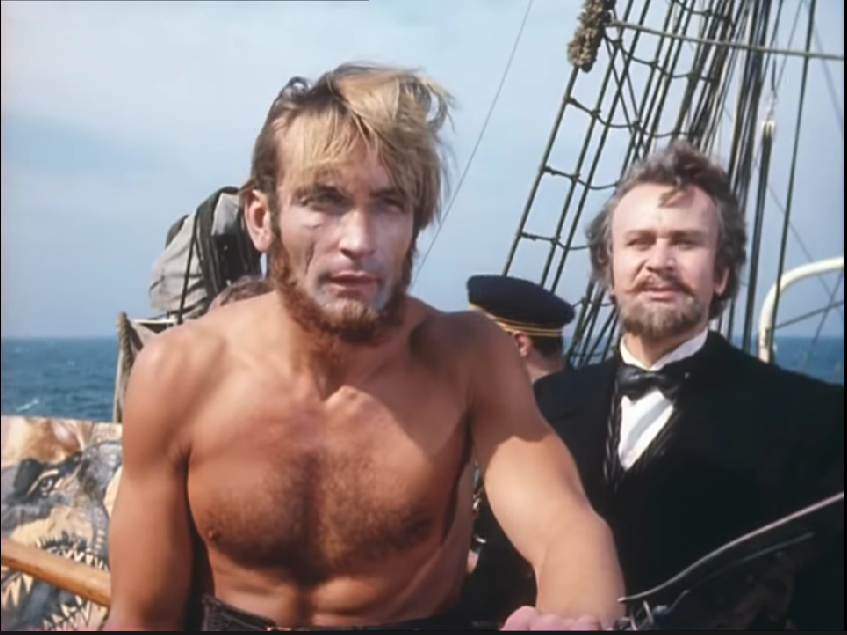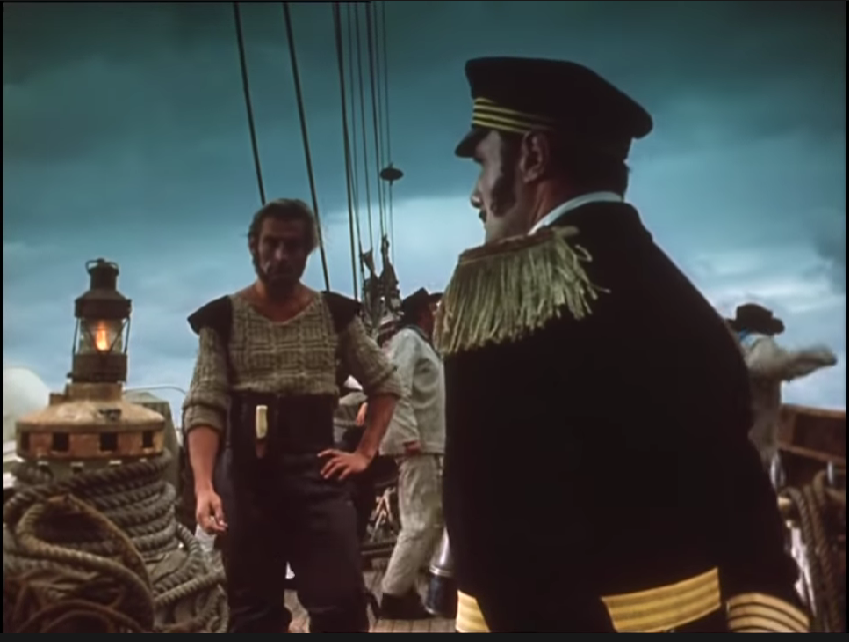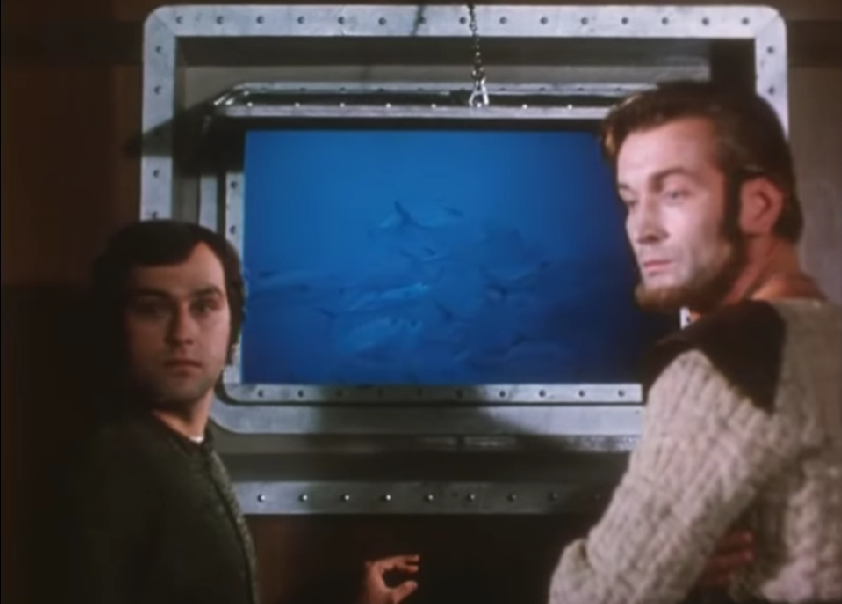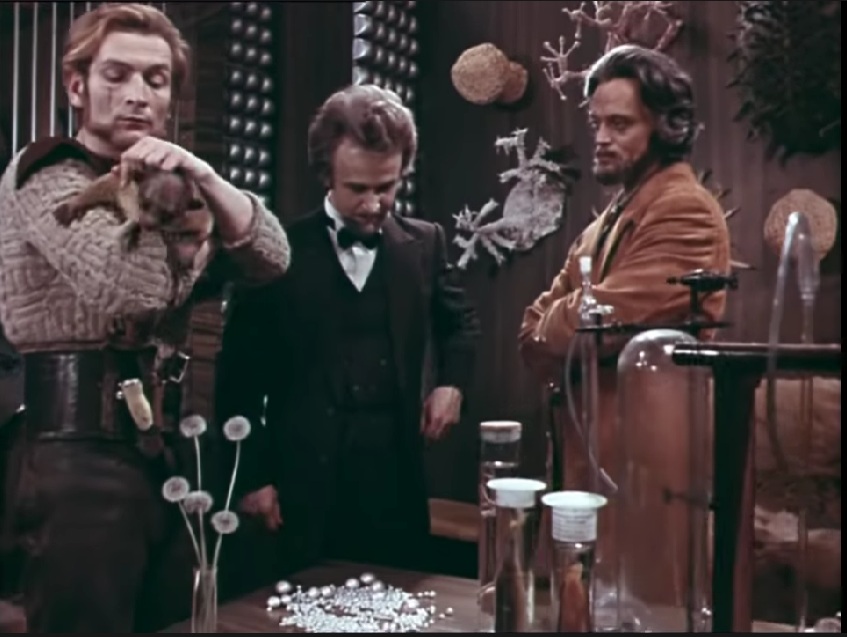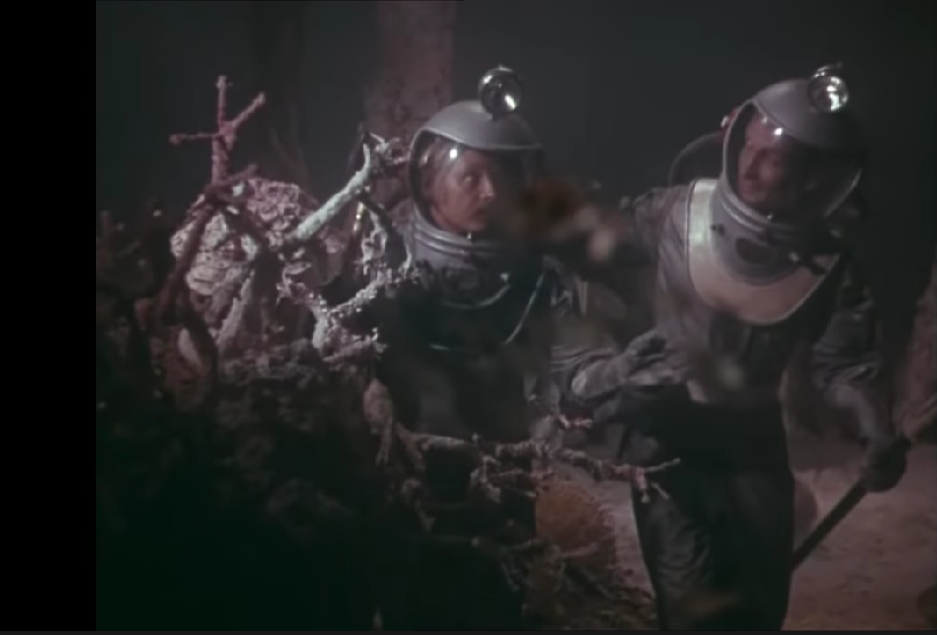-
#499 – Destination Space (1959)
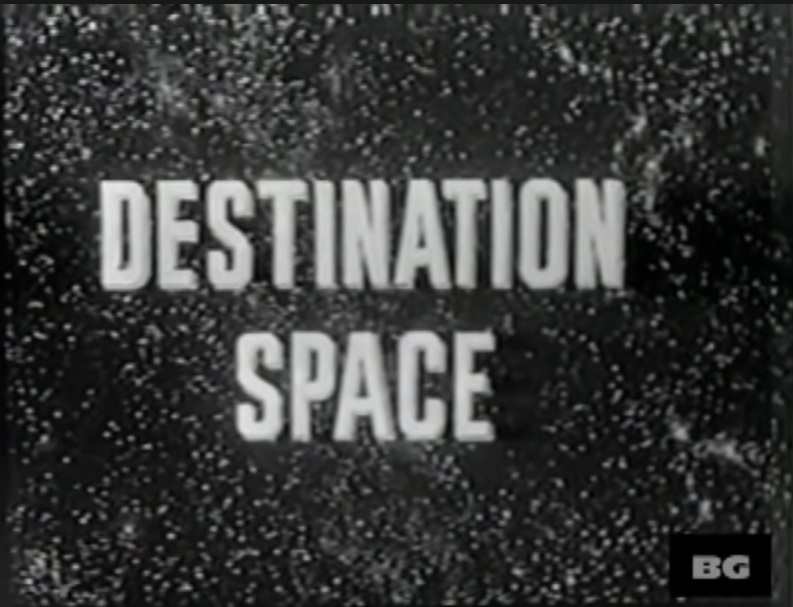
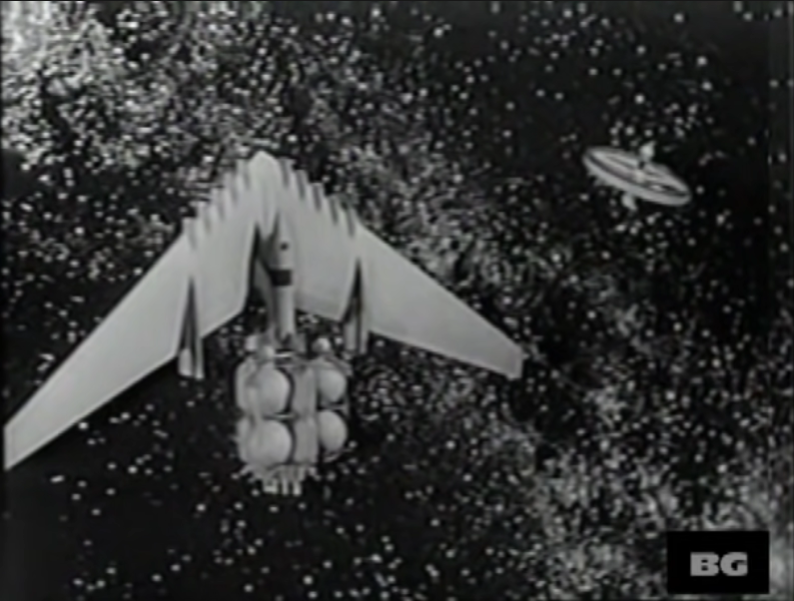
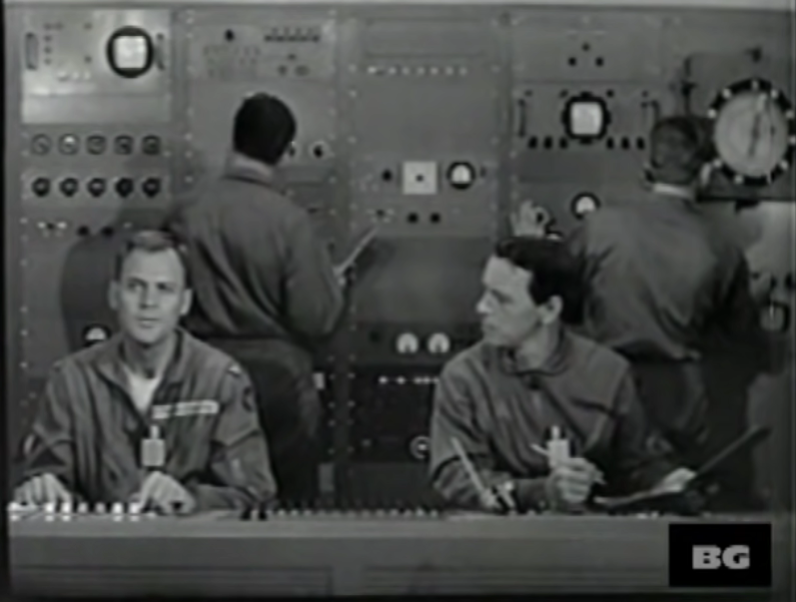
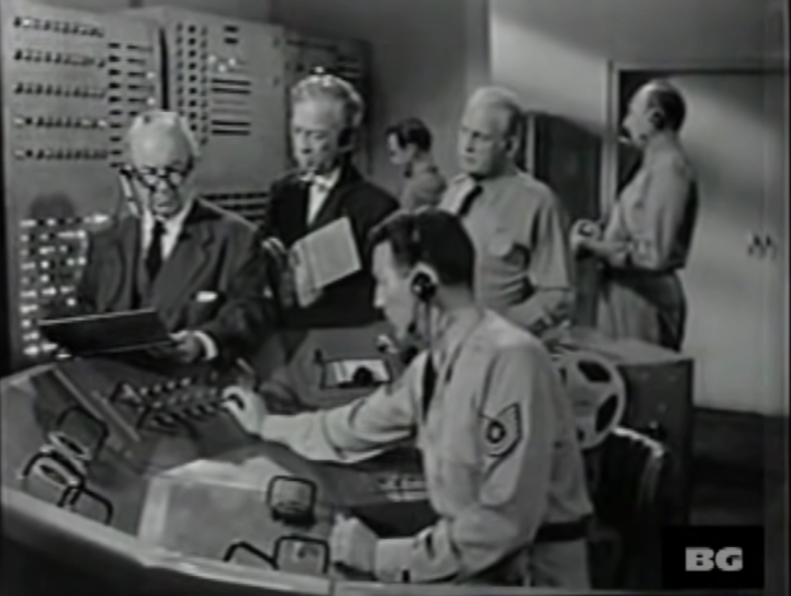
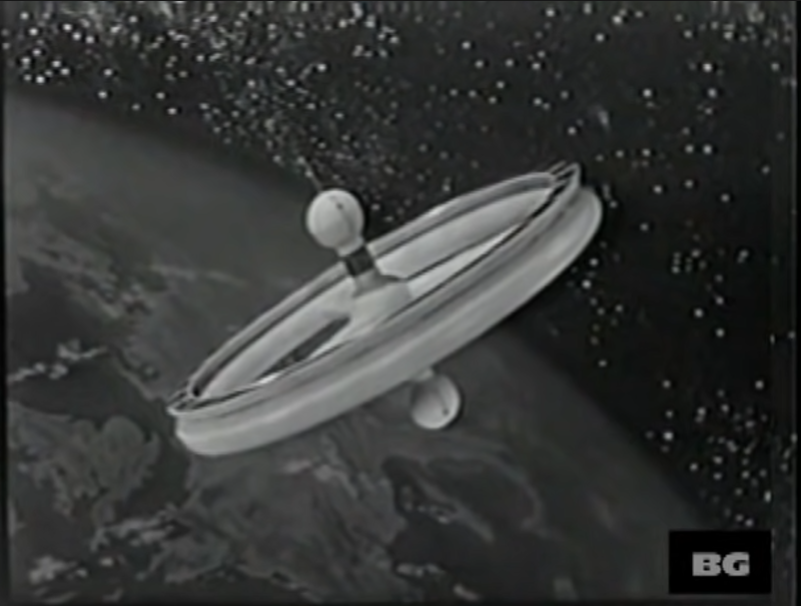
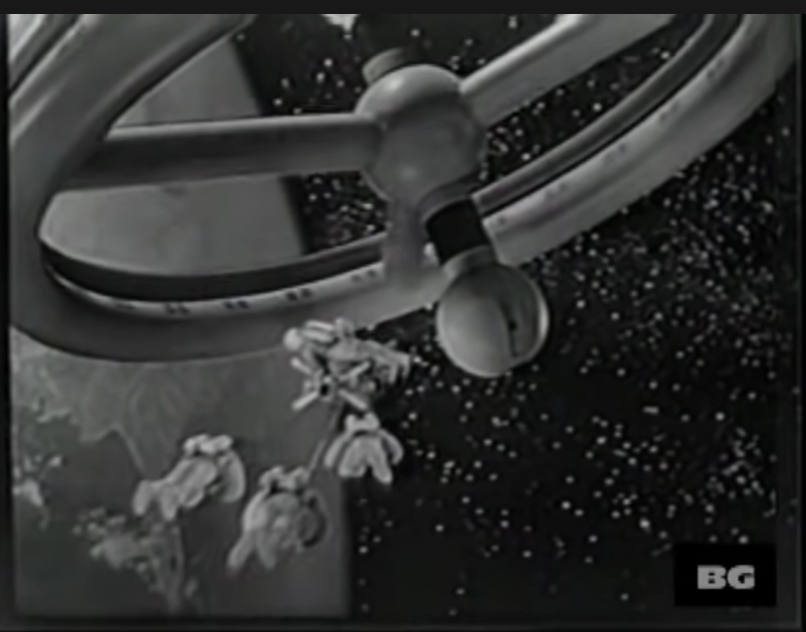
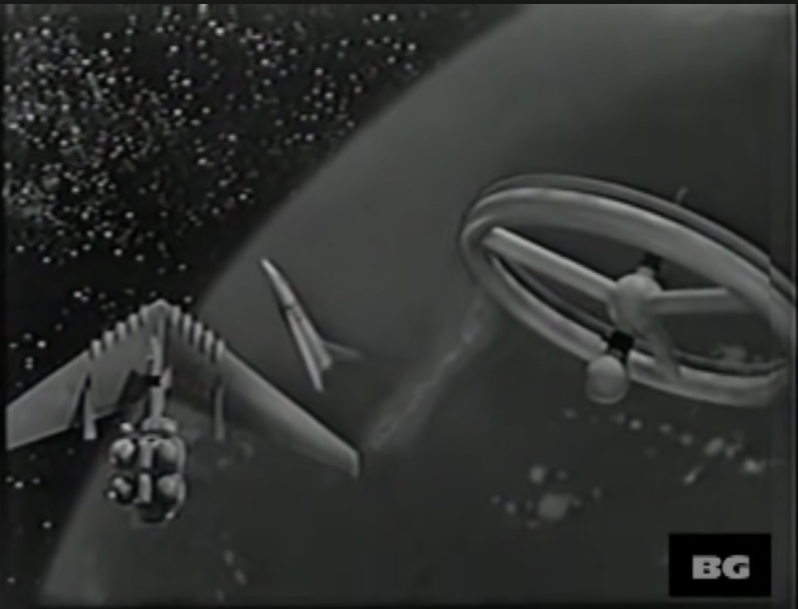
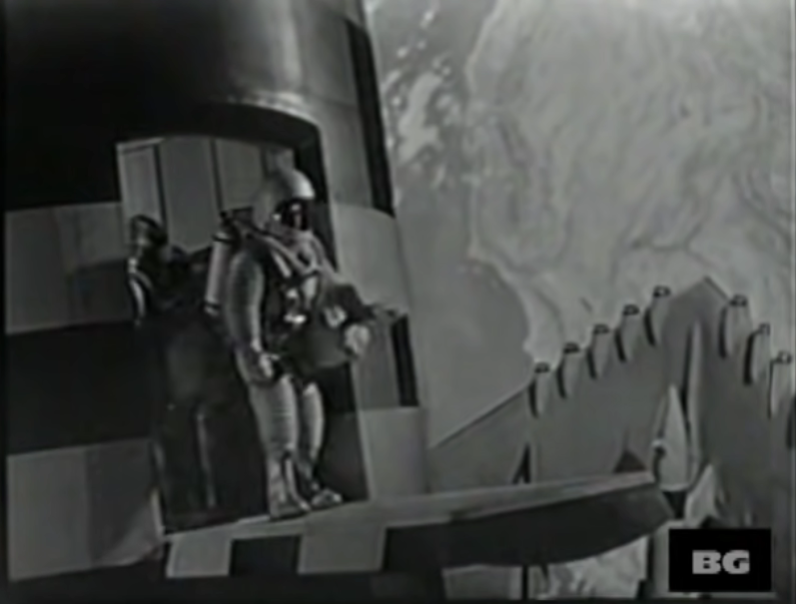
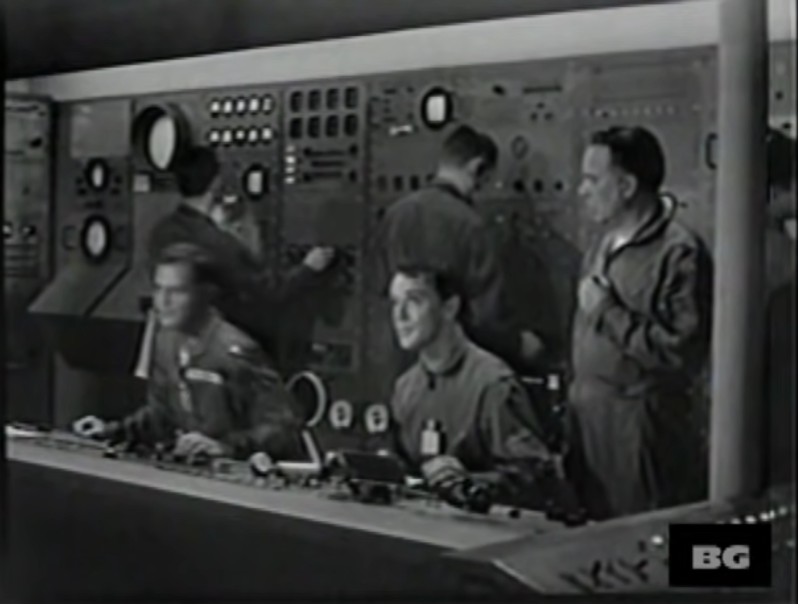
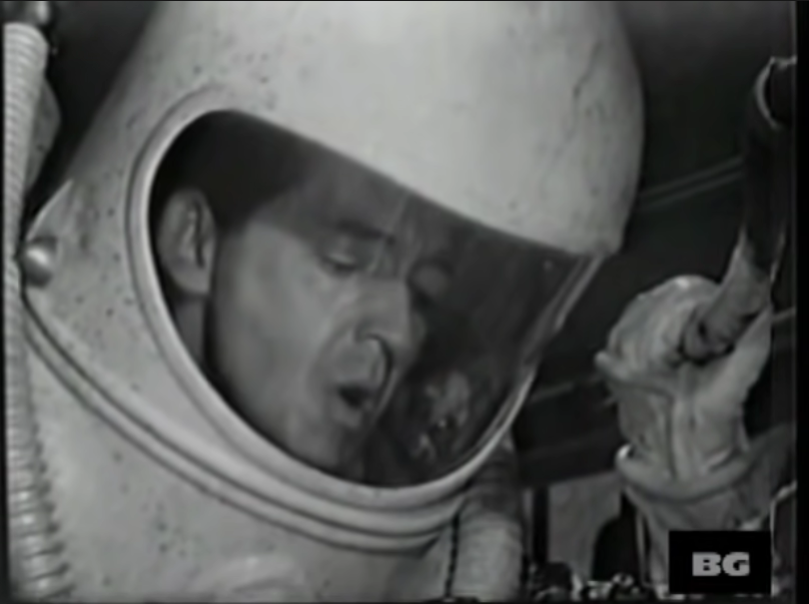
Destination Space (1959)
Film review #499
Director: Joseph Pevney
SYNOPSIS: On board an orbital space station, the launch of a new spaceship is aborted when a meteorite crashes into the station. Jim Benedict, director of the United States space programme and person in charge of the station, appears before a Senate committee hearing, attempting to justify the continued operation of the space station, despite resistance from, in particular, senator Royce…
THOUGHTS/ANALYSIS: Destination Space is a 1959 sci-fi television film that was intended as a pilot for a TV series, but the pilot was never picked up by the networks. The plot concerns the role of Jim Benedict, head of the U.S. space program, and an orbital space station designed to launch spaceships to the moon. After a meteorite strikes the space during a test launch, he faces renewed opposition to his plan, with to being described as a waste of money and too risky. Being a TV pilot, it is only fifty minutes long, and so has to fit a fair amount of content into it: the opening five minutes is decent enough, and provides enough backstory to what’s happening, with a bit of drama and suspense too. However, here is the one big problem with this film/pilot: I don’t know what the purpose of it is. They talk a lot about getting a spaceship to the moon and landing people there, establishing a colony etc. but the film doesn’t get anywhere near doing that, and instead focuses on committee hearings and inter-personal drama that isn’t particularly interesting. I suppose back in 1959 when this film was made the concept of landing people on the moon and space travel would have been more interesting because it had not been accomplished yet. The focus is not on the speculative or science-fiction aspects though, but instead rendering the logistics of space travel into a drama: the film spends more time in a senate committee hearing than it does in space. As a self-contained film it has no real climax or payoff, and no real progress is made on the objectives, which I suppose would have been part of the TV series if this pilot would have been picked up. However, I’m not sure where the TV series would have gone in that respect: would they have gone to the moon eventually? What then? More committee meetings? In making the premise so grounded and “realistic,” there seems very little scope for development and possibilities with the set up. As such, I can see why as a pilot it was not picked up for a full TV series.
The characters are a typical cast that aren’t particularly interesting or memorable. Jim Benedict is the typical male lead, like the type yo9u would see in the B-movies or serials in the 50’s: embodying the all-American ideals of ambition, adventure and such forth. The female characters solely exist as love interests for male characters, notably Jim’s girlfriend June and his buddy Dave’s girlfriend Kim. Kim also randomly confesses her undying love for Jim too, setting up a love triangle which really adds nothing to the story. I suppose there’s an effort to keep the characters grounded in line with the “realism” of the story and drama, but not making the drama between the characters compelling really leaves nothing for the viewer to hook onto.
There’s some ambition in setting the scene for the film/series; the models of the space station and shuttle orbiting earth are compelling enough for the time, though nothing special. The interior sets too are full of detail, which makes it stand out to me against the swathe of b-movies which looks like they were made on a shoestring budget. Overall though, it is easy to see why Destination Space did not get picked up for a TV series: while some of the visuals are interesting, there’s not any real indication of where the series would go other than more boring senate meetings. The decision to focus on drama and the realism behind the ideals of the space race doesn’t really offer anything because the characters are dull and uninteresting, without any unique traits to invest in. As a standalone film, it doesn’t offer the typical plot of a problem, a flowing narrative and climax, and is just really boring. Maybe it would have been of more interest at the time when the space race was more in the national conscious, but it’s got nothing to offer this long after the fact.
-
#498 – The Zohar Secret (2016)





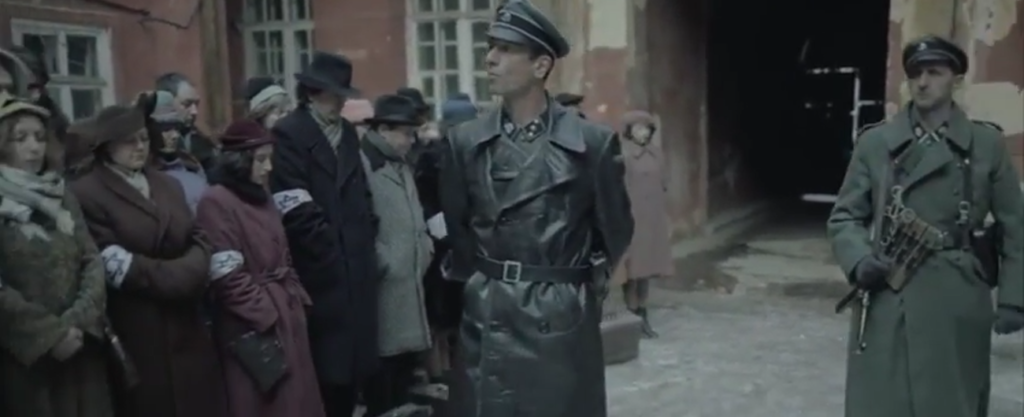




The Zohar Secret (2016)
Film review #498
Director: Vladek Zankovsky
SYNOPSIS: Max finds himself in possession of a scroll that contains the secret to transcend earthly existence and enter the next dimension of being. He is constantly being reborn in different eras of history, but always with the same task: to return the scroll to Jerusalem, where the rest of the scrolls in the collection have been buried.
THOUGHTS/ANALYSIS: The Zohar Secret is a 2016 Ukrainian film. The film centres around Max, who is constantly reborn across history with the constant mission to return a scroll to Jerusalem that supposedly contains the instructions to enter the next dimension of being. The backstory concerns how the scrolls were created by those opposed to the Roman Empire, and the history of humanity took a different turn with them, and so the scrolls were all buried apart from the one that Max now holds. Max is tasked in each of his reincarnations with returning the scroll, aided or frustrated by himself, who is usually on the other side of the historical conflict he finds himself in. The backstory is…intriguing, if a bit all over the place. The premise is interesting, and is set out in the introduction fairly clearly, but it is one of those films where the details and what everything means overall are deliberately left open to interpretation. Despite jumping through many periods of history, the film flows well and is simple enough to follow. The constant changes keep the film interesting too, even if each scenario is more or less the same. That, however, I think is one of the points: that in a lot of the different historical periods, Max is confronted by a version of himself, who is on the other side of history. This gives the impression that the constant struggles of history are endlessly repeating the same scenario of one side versus another ultimately ends up nowhere, and humanity never progresses. I think this message is gone through pretty well, and the different historical periods are rendered pretty nicely. There is often a comedic undertone to some of the scenes that amplifies this too, which again reinforces the idea that these conflicts are meaningless. Although I’m not sure whether this is actually intentional, because I’m not sure what the intention for the film actually is.
The overall tone of The Zohar Secret is very mixed and a little bit of everything: sometimes it feels like a philosophical film about mankind’s existence that is meant to be ambiguous about it’s objective. Sometimes the serious scenes are punctuated with some comedy, which trivialises the philosophical themes, but as mentioned above might be a part of showing the pointless of human conflict. Sometimes the comedy and the seriousness are pressed right against each other, most notably in the scene where Max is an SS officer in World War II, and his counterpart is a Jew. There’s a somewhat dark comedy in the whole set-up, but I’m just not sure what is meant to accomplish.
The film is very cleanly split into two parts: the first part is all of the aforementioned travelling through history mentioned above; the second part comes in at almost exactly halfway through as Max is reborn again, this time in a psychiatric hospital, where it turns out everything that had previously happened was a figment of his imagination, and he had admitted himself there to try and get better. This part of the film has the objective of undoing everything we learned in the first half of the film, and Max (along with the viewer) are attempted to be persuaded that everything that happened was a delusion. The characters in the hospital are all people Max met throughout his historical adventures, and everything is rationalised in the next hour of the film’s runtime, so you can reasonably be of the conclusion that it was all a figment of Max’s imagination. This part of the film isn’t as interesting as the first part though, and although everything is rationalised, it’s just not as appealing as the motivations given in the first half. Again, maybe that is intentional, to suggest that there is more to existence that what can be justified or rationally explained, but if that is the case, a more subtle approach might have been better. The setting of the hospital lends itself to more comedy, and the characters become more slapstick, and flashbacks add a spin on earlier scenes that interprets them as comedic farces, rather than historical battles. The final part of the film suddenly throws up the fact that the whole thing wasn’t just a figment of Max’s imagination, and because he chooses ultimately to hang on to the actual delusion of having a wife and child, he is sent back in time to do the whole thing again, presumably ad infinitum until he makes the right choice. If the film’s objective was to leave the ending ambiguous about what is real, it does not do that, because Max being sent back in time shows that the whole ordeal is real, and we are given no more insight into what this next dimension of being could be.
Overall, The Zohar Secret is a bit of a mess, but it still manages to be entertaining for the most part. I think the film wants to be a deep, philosophical film like 2001 about the nature of human existence, but it throws in a lot of drama and comedy that muddles the point rather than maintains it’s needed ambiguity. It hurts itself too in over-rationalising what it delivers, which probably could have worked if it wasn’t so heavy-handed. The parts I thought were interesting, such as the rendering human conflict as an endless repetition of the same ideas, I’m not sure were actually intentional or not. The clear-cut division of the film into two halves again undermines the film’s needed ambiguity. So yes, it’s mildly interesting and entertaining, but as what the film is aiming to be, I have no clue.
-
#497 – Wahan Ke Log (1967)



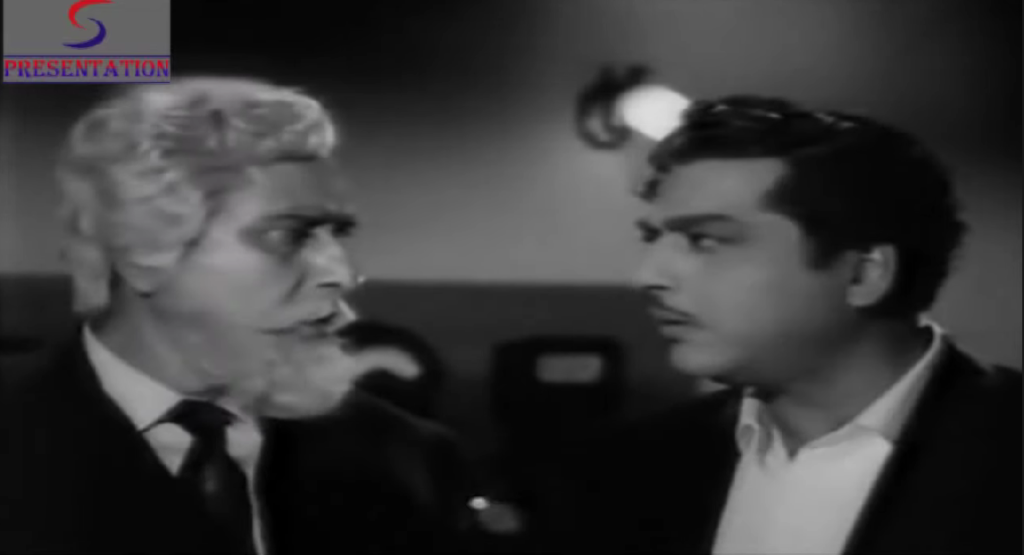






Wahan Ke Log (1967)
Film review #497
Director: Nisar Ahmad Ansari
SYNOPSIS: Martians are contacting and blackmailing various wealthy people to hand over their diamonds. Agent Rakesh is assigned to investigate these Martians and put a stop to them.
THOUGHTS/ANALYSIS: Wahan Ke Log is a 1967 Indian sci-fi film. The film revolves around a case concerning Martians contacting various wealthy individuals to blackmail them into handing over their diamonds, in preparation of an invasion of Earth. When the head of the central intelligence services is killed by these Martians, agent Rakesh is assigned to the case along with Neelkanth, a private detective, and they travel to Bombay to commence their investigation. This film is an interesting mix of things: it has the fundamentals of a typical Bollywood film with the romance, drama and musical and dance interludes, but also intermixed with a plot reminiscent of the James Bond 007 parodies and imitations that emerged (predominantly in Europe) around the time. The sci-fi element concerning the aliens and spaceships has the feeling of a Hollywood b-movie too, so combining all of these different genres gives the film a bit of a unique feel. With all these different things going on though, the film feels a bit disjointed as it moves between the different aspects of the story, and there can be large gaps between certain elements don’t factor in. The central story is fairly robust though, and has some twists and turns that drive the plot and characters forward. The mystery surrounding the aliens is likewise one that maintains viewer interest, but is neglected over parts of the film.
The tone of the film moves between a more traditional Bollywood drama/romance and more of a comedy. As mentioned, it reminds me of the 007 parodies and imitations that came out in the late 1960s. Rakesh himself embodies both the romantic male lead, and also a comedic fool. However, Neelkanth usually takes up the comedic role as the jester-like sidekick for himself, leaving Rakesh to deal with situations like living with his overbearing Mum pressuring him to get married and such. Anita as the love interest is fairly passive and has a very traditional role as such. The villain Anil Chakravarty is a gangster who has kidnapped the scientists of the world to construct machines to prepare for the Martian invasion of Earth, and he is definitely presented as a typical Bond villain who has his own mystery about him.
The film has many of the lavish Bollywood song and dance numbers you would expect. I’m not an expert on Bollywood music and films, so I can’t really compare them to others, but they do the job. The sci-fi elements such as the aliens, UFO’s, and sets are all very reminiscent of the b-movie productions I have mentioned, and in that context, they are fairly well done. The UFO’s are decently detailed, and the sci-fi sets have plenty going on in them, so they are interesting enough for the purposes of the film. Overall, Wahan Ke Log is an interesting mix of genres with a capable story, but it’s really nothing more than a novel bit of history at this point.
-
#496 – Captain Nemo (1975)
Captain Nemo (1975)
Film review #496
Director: Vasili Levin
Just when you think you’ve reviewed every adaptation of 20,000 Leagues Under the Sea…
SYNOPSIS: Following sightings of a mysterious giant creature in the oceans targeting various ships, Professor Pierre Arronax takes a voyage on the Blue Star liner to hopefully encounter and figure out the nature of this supposed beast. However, when the ship encounters it, an attack knocks the Professor, his servant Conseil, and harpooner Ned Land overboard. They awake and find that the sea monster is not a monster at all, but a submarine called the Nautilus, within which they are now captive under the supervision of Captain Nemo…
THOUGHTS/ANALYSIS: Captain Nemo is a 1975 three-part TV movie, and an adaptation of Jules Verne’s 20,000 Leagues Under the Sea. The plot of the film follows the original novel fairly closely, with Professor Arronax, his manservant Conseil, and harpooner Ned Land being swept overboard from the ship they are on to find themselves rescued by Captain Nemo and his submarine the Nautilus. Thus starts a series of adventures as the captives explore with Nemo the oceans of the world and it’s inhabitants. With a runtime of nearly three and a half hours, the film takes its time in establishing the setting and characters, and bringing the novel to life. It does omit some of the more fantastical (exploring Atlantis etc.) parts of the story and instead keeps it grounded, which a lot of the adaptations do admittedly, so that’s nothing special. With such a long runtime, the film does feel a bit too grounded, and there’s a lack of variety as the captives are confined to the Nautilus apart from the odd excursion under the sea. As such, the adventure aspect falls a little flat. The film does go into a bit more detail regarding Nemo’s past and the suffering of his family and people by colonial forces. The original novel kept things fairly ambiguous regarding the nationality of the forces, but the film here identifies them as British; which would have been accurate, since Nemo is meant to have been a prince in India, and it was British forces which occupied it. The film also casts a similarly critical eye on the Spanish conquest of the Incans. I suppose since the film was made in the Soviet Union they were more inclined to explicitly show the cruelty of Western colonialism and name the specific nations involved.
The characters from the novel are all faithfully represented, and the movie doesn’t really change their personalities, and neither does it need to: Arronax is the astute, analytical scholar, his manservant Conseil serves as a bit of comic relief (although it is much more muted and slight compared to other versions which make it more explicit), and Ned Land is the brawly, short-tempered type who directly contrasts with the rational Arronax and the stoic Nemo. The characters are portrayed very well with regards to their strengths, but they do again feel a little too grounded and as such never evolve past their starting points. Like the novel, and many of Jules Verne’s stories, there’s a noticed lack of any female characters; the only one being Arronax’s wife, who we see sparingly as she receives news about the fate of her missing husband.
The settings of the film are nicely varied: the flashbacks set in India and France feel authentic and lively. The Nautilus sets are very detailed and full of activity, although you see so much of them you might think you’re being held captive on the Nautilus too. The diving suits used for the ocean walk scenes look suspiciously like space suits, which makes me think they’re leftover props from a sci-fi film (probably one I’ve reviewed at some point). The underwater footage is a combination of stock footage and an indoor pool dressed as the ocean, which still looks pretty decent.
Overall, Captain Nemo is a fairly decent adaptation of the popular novel, and although it offers an accurate representation of the characters and settings, it lacks a spirit of adventure and the more fantastical elements that are a crucial part of the stories success. There’s obviously plenty of effort and care that has been put in to making this version, and it’s fairly solid. If you want a more streamlined cinematic experience though, you might be better off with another version (there’s plenty of them).


